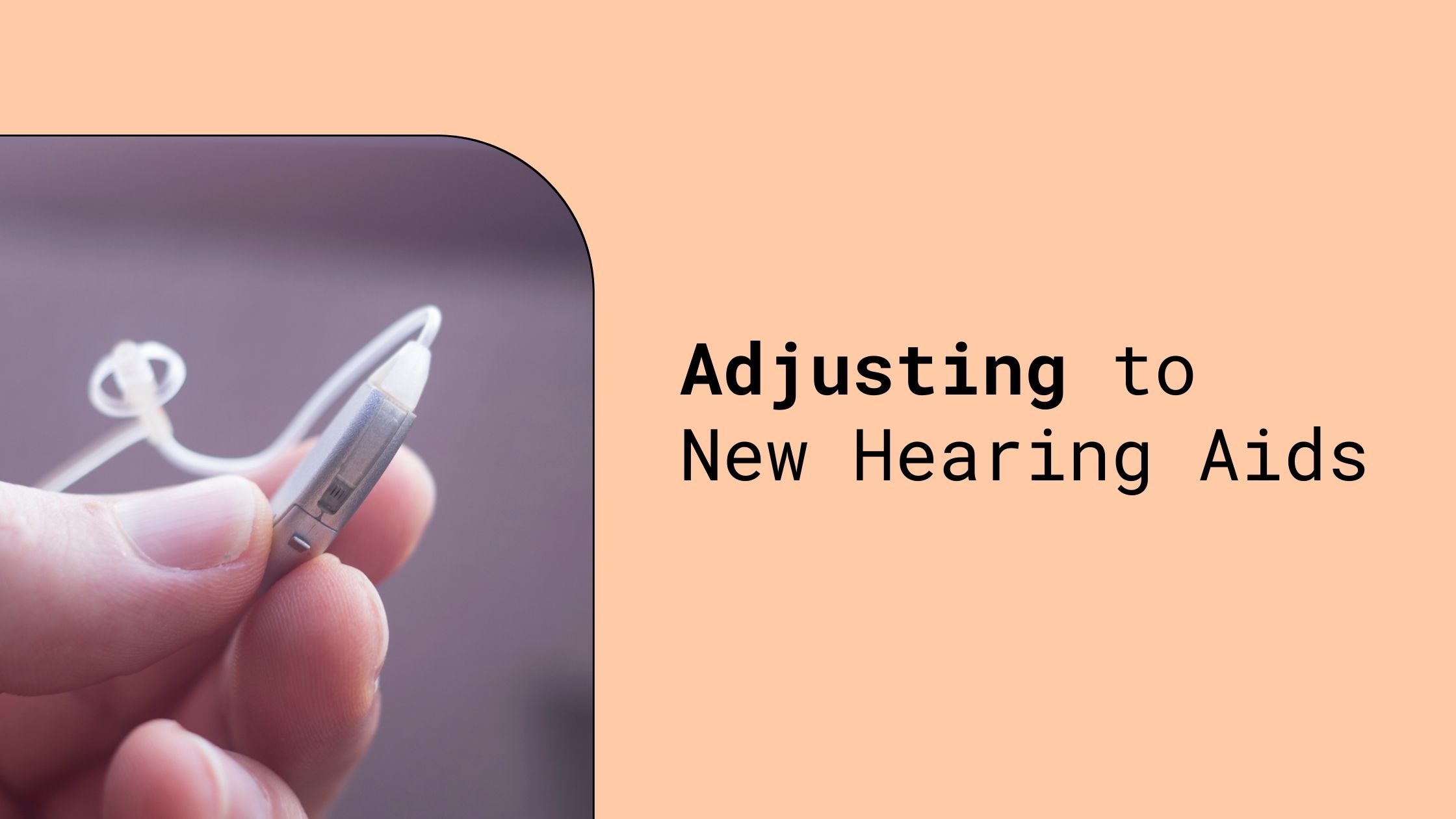If there is one thing we know about being human, it’s that most of us find change extremely challenging. Sometimes, we find ourselves in situations that leave us unhappy and yet, we are hesitant to take actions that will ultimately benefit us because we’d prefer to deal with our familiar, but uncomfortable, situation rather than take the hard step of making changes!
This can absolutely happen when you are faced with confronting hearing loss. It’s a totally normal way to deal with a new challenge, but the real rewards come when you decide that a little period of adjustment is worth it when the outcome will likely result in a happier hearing experience, better relationships and a decrease in the likelihood of dementia. These are all benefits that correlate with choosing to intervene in hearing loss with hearing aids. And the period of adjustment is just that: a relatively short length of time learning something new. Here are a few things to keep in mind as you embark upon life with hearing aids.
Why hearing aids can be challenging at first
Using hearing aids for the first time after a length of time with hearing loss can be disorienting. Your hearing loss may have arrived slowly, and over time, which is the pattern associated with age-related hearing loss and many cases of noise-induced hearing loss. As you lost small percentages of your ability to hear, your brain and life adjusted to your new reality. Hearing much less sound information became your new normal.
Years or even decades may have gone by before you got to the point in which you decided intervention was necessary. When you first put your new hearing aids in, a lot of sound information that has been silent all those years can come rushing in. It’s a sensory overload and can feel incredibly overwhelming. You and your brain need time to adjust.
Be patient with yourself
Patience is perhaps your most important tool during the process of adjustment. Gently remind yourself that this is a gradual process that will take time to master. Take small steps and grant yourself a reward once you’ve completed your goal. This might look like committing to wearing your hearing aids for increasing amounts of the day over the period of a week. Each day, give yourself an additional 15 minutes on the clock. When you’ve reached your expectation, reward yourself with something you love, like your favorite dessert or snack, a film or show you’ve wanted to watch, or your favorite evening walk.
Remember that learning to wear hearing aids is the same as learning any other new skill and mistakes or uncomfortable feelings are part of the journey. It’s easy to have patience when we watch others learn new things, so you might try and extend some of that compassion and support towards yourself as you bravely face change.
Enlist support
Trying to motivate yourself and give yourself unending compassion can also be exhausting! Reach out to a trusted confidant, spouse or family member and ask for their help. Your friends and family love and support you, so give them a welcome opportunity to really show it!
Share your experiences, the rewarding and the challenging, that go along with learning to wear hearing aids after hearing loss. Let your friends and family cheer you on and you’ll find that peer support can be a very strong motivation in itself.
Talk to others who’ve done this before
Although hearing loss can be an isolating experience, you are not alone. Many others before you have faced similar challenges and may have learned lessons that can benefit you now. Find a support group for people with hearing loss and you’ll be connected with a resource of folks who can listen and relate to your lived experience as well as offer tips and tricks that you can use as a hearing aid wearer.
We’re here to help
Adjusting to hearing aids is a process that we are very familiar with, and we’re here to support you! We can help you understand the process of learning to live with hearing aids based upon their years of experience and learning.
We typically advise numerous fittings for new hearing aids as they are rarely a one-size-fits-all product. Instead, we can fine-tune settings and adjust along the way as your new hearing reality improves.

